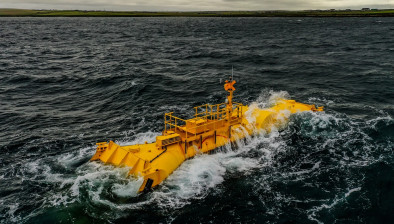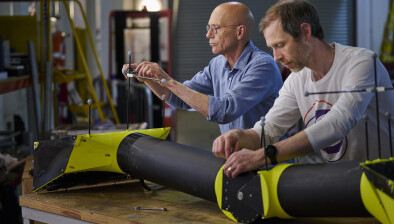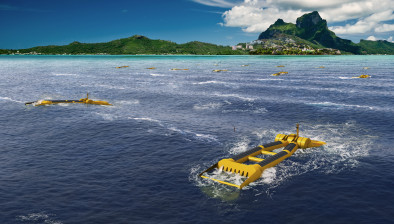Thai petroleum company PTTEP joins Scottish wave power project
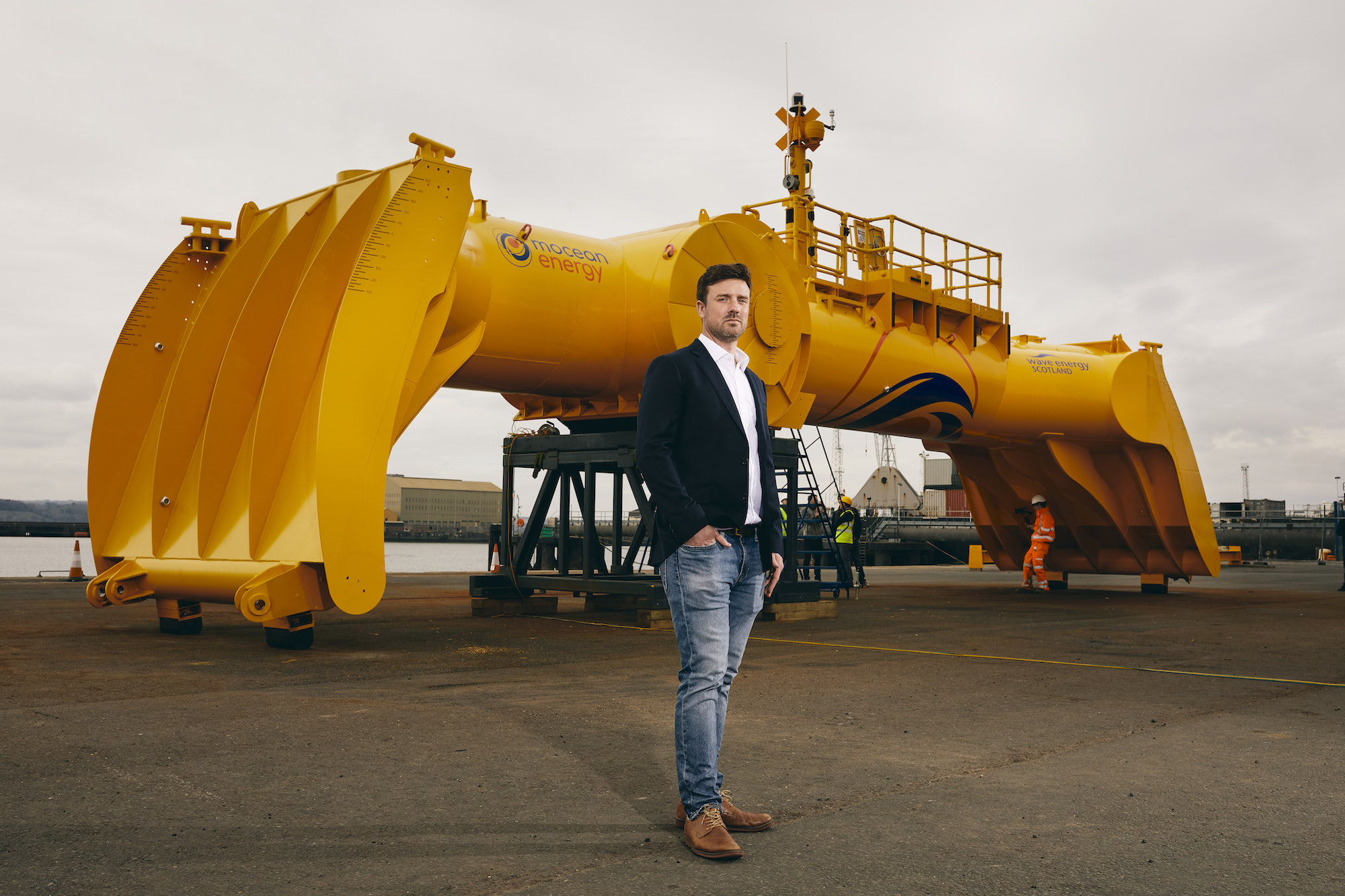
Cameron McNatt, Mocean Energy managing director
Thai state petroleum company PTTEP has joined a collaborative green technology initiative based in Scotland, aimed at demonstrating the potential of wave-powered subsea equipment.
The project, dubbed Renewables for Subsea Power (RSP), includes a £2 million demonstrator initiative which is currently operational off the Orkney coast.
The RSP project employs a Blue X wave energy converter, constructed by Edinburgh-based Mocean Energy, and an underwater Halo battery from Verlume, an energy management specialist in Aberdeen. The project represents a promising green and cost-effective alternative to umbilical cables, which are carbon intensive with long lead times to procure and install.
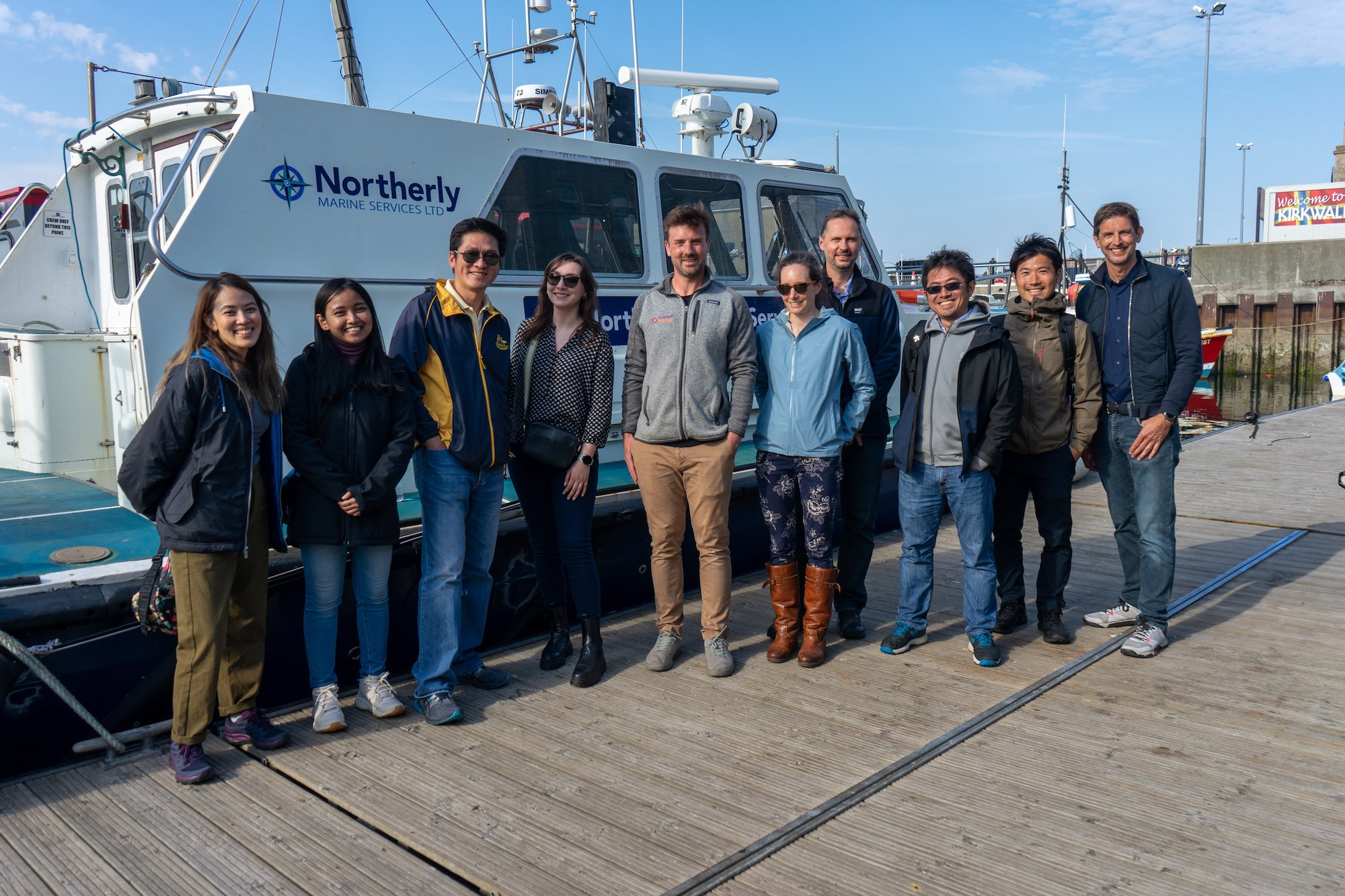
Pictured: PTTEP representatives and others
The consortium leading the RSP initiative is diverse, with PTTEP joining a group that already includes Mocean Energy, Verlume, Baker Hughes, Serica Energy, Harbour Energy, Transmark Subsea, and the Net Zero Technology Centre (NZTC). By joining, PTTEP gains access to all test data and results and can contribute to future test plans. It will also receive a feasibility assessment for using RSP technology at a location of their choice.
Ian Crossland, commercial director at Mocean Energy, said: “This inward investment underlines the international interest in the potential of our combined technologies.
“Scotland has a long track record in subsea excellence and is the global leader in wave technology development, and we are delighted that PTTEP has decided to come on board.”

Andy Martin
Andy Martin, chief commercial officer at Verlume, added: “The Renewables for Subsea Power project is a solution which can help decarbonise operations in many locations across the world and the further expansion of the project consortium is a concrete example of international demand.
“We look forward to receiving PTTEP’s input and insights and to working closely with them alongside the consortium members to further explore our energy transition enabling technologies.”
Bundit Pattanasak, senior vice president, technology management division from PTTEP, said: “We are pleased to be joining this collaborative venture at such an exciting moment where we can learn lessons alongside our new partners and also share in the project’s success.
“PTTEP is committed to Net Zero Greenhouse Gas Emissions goal in 2050 and one of the initiatives is to maximize the use of renewable energy in our operations. We can see the potential of the RSP project that will support us to achieve the decarbonization target.”
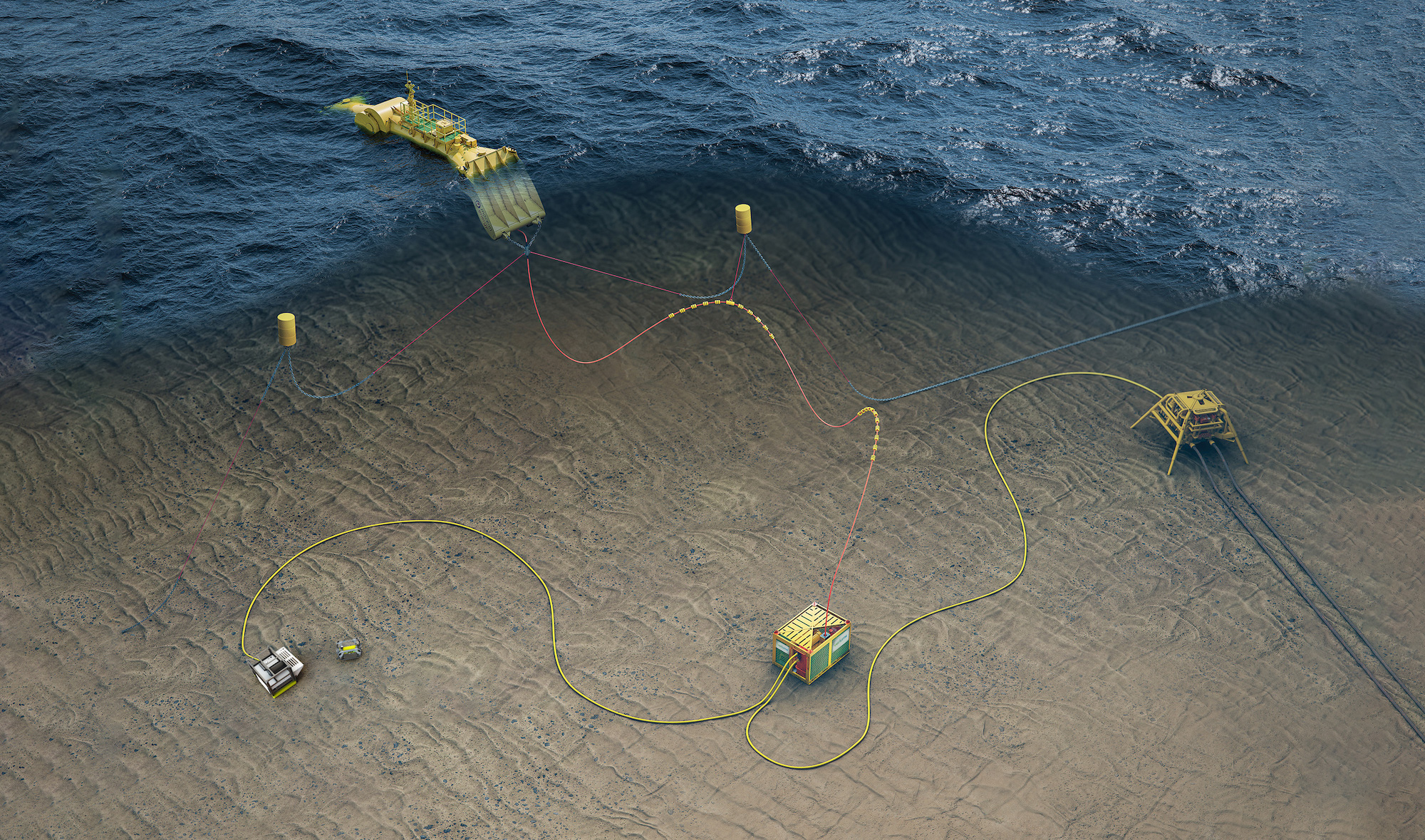
A 3D render of the project's demonstrator initiative
Mhairi Begg, technology manager at NZTC, said: “We are excited to have PTTEP join the consortium. This inward investment demonstrates the international potential of the technology and marks a significant moment in the project’s success.
“The consortium is a prime example of how global collaboration can advance green technologies and foster technology deployment.”
The Orkney deployment is the third phase of the Renewables for Subsea Power project. In 2021, the consortium invested £1.6m into phase two of the programme – which saw the successful integration of the core technologies in an onshore test environment at Verlume’s operations facility in Aberdeen.
In 2021, Mocean Energy’s Blue X prototype underwent a programme of rigorous at-sea testing at the European Marine Energy Centre’s Scapa Flow test site in Orkney where they generated first power and gathered significant data on machine performance and operation.
Verlume’s seabed battery energy storage system, Halo, has been specifically designed for the harsh underwater environment, reducing operational emissions and facilitating the use of renewable energy by providing a reliable, uninterrupted power supply. Halo’s fundamental basis is its intelligent energy management system, Axonn, a fully integrated system which autonomously maximises available battery capacity in real time.




